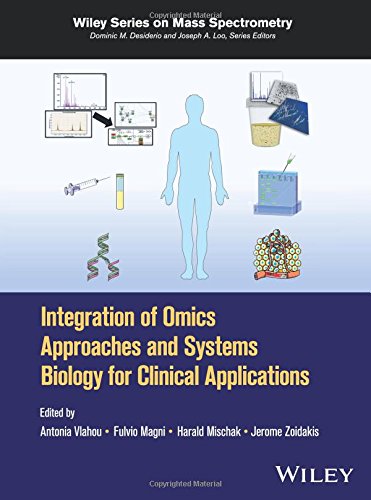Machine Learning Methods for Multi-Omics Data Integration
暫譯: 多組學數據整合的機器學習方法
Alkhateeb, Abedalrhman, Rueda, Luis
- 出版商: Springer
- 出版日期: 2024-11-14
- 售價: $7,840
- 貴賓價: 9.5 折 $7,448
- 語言: 英文
- 頁數: 168
- 裝訂: Quality Paper - also called trade paper
- ISBN: 3031365046
- ISBN-13: 9783031365041
-
相關分類:
Machine Learning
海外代購書籍(需單獨結帳)
商品描述
The advancement of biomedical engineering has enabled the generation of multi-omics data by developing high-throughput technologies, such as next-generation sequencing, mass spectrometry, and microarrays. Large-scale data sets for multiple omics platforms, including genomics, transcriptomics, proteomics, and metabolomics, have become more accessible and cost-effective over time. Integrating multi-omics data has become increasingly important in many research fields, such as bioinformatics, genomics, and systems biology. This integration allows researchers to understand complex interactions between biological molecules and pathways. It enables us to comprehensively understand complex biological systems, leading to new insights into disease mechanisms, drug discovery, and personalized medicine. Still, integrating various heterogeneous data types into a single learning model also comes with challenges. In this regard, learning algorithms have been vital in analyzing and integrating these large-scale heterogeneous data sets into one learning model.
This book overviews the latest multi-omics technologies, machine learning techniques for data integration, and multi-omics databases for validation. It covers different types of learning for supervised and unsupervised learning techniques, including standard classifiers, deep learning, tensor factorization, ensemble learning, and clustering, among others. The book categorizes different levels of integrations, ranging from early, middle, or late-stage among multi-view models. The underlying models target different objectives, such as knowledge discovery, pattern recognition, disease-related biomarkers, and validation tools for multi-omics data.
Finally, the book emphasizes practical applications and case studies, making it an essential resource for researchers and practitioners looking to apply machine learning to their multi-omics data sets. The book covers data preprocessing, feature selection, and model evaluation, providing readers with a practical guide to implementing machine learning techniques on various multi-omics data sets.
商品描述(中文翻譯)
生物醫學工程的進步使得透過開發高通量技術(如下一代定序、質譜和微陣列)來生成多組學數據成為可能。隨著時間的推移,涵蓋基因組學、轉錄組學、蛋白質組學和代謝組學等多個組學平台的大規模數據集變得更加可獲得且具成本效益。整合多組學數據在許多研究領域(如生物資訊學、基因組學和系統生物學)中變得越來越重要。這種整合使研究人員能夠理解生物分子和通路之間的複雜互動。它使我們能夠全面理解複雜的生物系統,從而對疾病機制、藥物發現和個性化醫療提供新的見解。然而,將各種異質數據類型整合到單一學習模型中也面臨挑戰。在這方面,學習算法在分析和整合這些大規模異質數據集到一個學習模型中發揮了重要作用。
本書概述了最新的多組學技術、數據整合的機器學習技術以及用於驗證的多組學數據庫。它涵蓋了監督式和非監督式學習技術的不同類型的學習,包括標準分類器、深度學習、張量分解、集成學習和聚類等。本書將不同層次的整合進行分類,涵蓋多視角模型的早期、中期或晚期整合。底層模型針對不同的目標,如知識發現、模式識別、與疾病相關的生物標記以及多組學數據的驗證工具。
最後,本書強調實際應用和案例研究,使其成為研究人員和實踐者尋求將機器學習應用於其多組學數據集的重要資源。本書涵蓋數據預處理、特徵選擇和模型評估,為讀者提供了在各種多組學數據集上實施機器學習技術的實用指南。
作者簡介
Abedalrhman Alkhateeb earned his Bachelor's degree in Computer Science from the University of Jordan, Amman, Jordan, in 2004, and his MSc and Ph.D. in Computer Science from the University of Windsor, Canada, in 2011 and 2018, respectively. He is currently an Assistant Professor at Princess Sumaya University for Technology in Amman, Jordan. Previously, he served as an Assistant Professor and Mitacs Accelerate Postdoctoral Fellow at the University of Windsor, Canada. His research interests include machine learning, deep learning, bioinformatics, and health informatics.
Abedalrhman Alkhateeb has authored and co-authored more than 50 papers in prestigious journals and conferences. He also organized a workshop titled "MODI: Machine Learning Models for Multi-omics Data Integration" for three consecutive years from 2019 to 2021 in conjunction with ACM Conference on Bioinformatics, Computational Biology, and Health Informatics (ACM BCB). His recent research focuses on the health outcomes of various types of cancers. He has gained industrial experience as a bioinformatician and data analyst in several organizations, including ITOS Oncology Inc. and BlackBerry Limited in Canada, and UAE University in the United Arab Emirates.Luis Rueda received his Bachelor's degree in computer science from the National University of San Juan, Argentina, in 1993, and his Master's and Ph.D. degrees in computer science from Carleton University, Canada, in 1998 and 2002, respectively. He is currently a Full Professor in the School of Computer Science at the University of Windsor. His current research interests are mainly focused on devising shallow and deep machine learning and representation learning algorithms at the fundamental level and applications in bioinformatics and cybersecurity to problems in biomedical imaging, transcriptomics, integrative genome-wide data analysis, identification of cancer biomarkers, user authentication, spam review detection and social engineering.Luis Rueda holds four patents on machine learning and cybersecurity and has more than 200 publications and presentations in prestigious journals and conferences in machine learning, computational biology, and cybersecurity. He currently serves as Associate Editor of IEEE/ACM Transactions on Computational Biology and Bioinformatics, and Network Modeling Analysis in Health Informatics and Bioinformatics. He is also a member of the program committees of several conferences in the field. He is also a Senior Member of the IEEE, and a Member of t作者簡介(中文翻譯)
Abedalrhman Alkhateeb於2004年在約旦安曼的約旦大學獲得計算機科學學士學位,並於2011年和2018年分別在加拿大溫莎大學獲得計算機科學碩士和博士學位。他目前是約旦安曼的公主蘇瑪雅科技大學的助理教授。之前,他曾擔任加拿大溫莎大學的助理教授及Mitacs Accelerate博士後研究員。他的研究興趣包括機器學習、深度學習、生物資訊學和健康資訊學。
Abedalrhman Alkhateeb已在多個知名期刊和會議上發表和合著超過50篇論文。他還在2019年至2021年間連續三年組織了一個名為「MODI: 機器學習模型用於多組學數據整合」的工作坊,該工作坊與ACM生物資訊學、計算生物學和健康資訊學會議(ACM BCB)同時舉行。他最近的研究專注於各類癌症的健康結果。他在多個組織中獲得了生物資訊學家和數據分析師的工業經驗,包括加拿大的ITOS Oncology Inc.和BlackBerry Limited,以及阿拉伯聯合酋長國的阿聯酋大學。
Luis Rueda於1993年在阿根廷聖胡安國立大學獲得計算機科學學士學位,並於1998年和2002年分別在加拿大卡爾頓大學獲得計算機科學碩士和博士學位。他目前是溫莎大學計算機科學學院的正教授。他目前的研究興趣主要集中在設計淺層和深層機器學習及表示學習算法的基本層面,以及在生物資訊學和網絡安全中的應用,解決生物醫學成像、轉錄組學、整合全基因組數據分析、癌症生物標記識別、用戶身份驗證、垃圾郵件審查檢測和社會工程等問題。
Luis Rueda擁有四項有關機器學習和網絡安全的專利,並在機器學習、計算生物學和網絡安全的知名期刊和會議上發表和展示超過200篇論文。他目前擔任IEEE/ACM計算生物學與生物資訊學期刊及健康資訊學與生物資訊學中的網絡建模分析的副編輯。他還是多個相關領域會議的程序委員會成員。他也是IEEE的高級會員,以及其他專業組織的成員。














